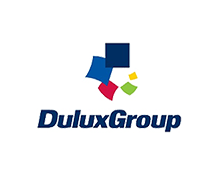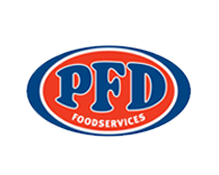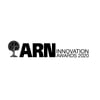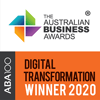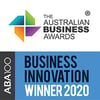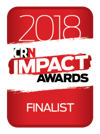Unsupervised Learning
Unsupervised learning:Unsupervised learning is a type of machine learning where the data is not labeled with class labels. The goal of unsupervised learning is to learn a model that can accurately predict the class label for new data instances based on their features.
Unsupervised learning is a powerful tool for uncovering patterns and insights from data that could not be found with traditional methods. It has the potential to revolutionize how organizations make decisions by providing an automated way to uncover hidden insights from large datasets. This article will explore unsupervised learning, its use cases, and its advantages over traditional methods.
Unsupervised learning is a form of machine learning that does not rely on labeled data for training. Instead, it relies on algorithms to detect patterns and anomalies in large datasets without human guidance. These algorithms can detect complex relationships between variables, as well as identify outliers or anomalies in the data. They are also capable of extracting features from the data that can be used in other predictive models.
The advantages of using unsupervised learning include its ability to quickly analyze large datasets and generate meaningful insights without direct human intervention. Additionally, unsupervised learning algorithms are able to identify patterns that may have otherwise gone unnoticed by humans, allowing organizations to gain valuable insights into their data sets. This article will discuss these benefits, as well as some common use cases of unsupervised learning.
What Is Unsupervised Learning With Example?
Unsupervised learning is a branch of machine learning where data points are not labeled and thus, the algorithm must discover patterns in the data. It is used to uncover hidden structures within unlabeled and unstructured data. Unsupervised machine learning algorithms are typically used for clustering, dimensionality reduction, and association rule mining. Two of the most commonly used unsupervised algorithms are k-means clustering and expectation maximization (EM).
K-means clustering is an iterative algorithm that assigns each data point to a cluster based on its distance from the cluster’s centroid. This process is repeated until all data points have been assigned to clusters that minimize their distance from the centroid. Expectation maximization (EM) is a probabilistic approach that uses a mixture of probability distributions to model the data and find underlying patterns in it. EM starts with an initial set of parameters and then adjusts them iteratively, by maximizing the likelihood of observing the data given these parameters. It can also be used for dimensionality reduction by combining multiple variables into one latent variable, as well as for discovering structure in large neural networks. Therefore, both k-means clustering and expectation maximization (EM) belong to unsupervised learning techniques which help uncover meaningful patterns from unlabeled datasets.
What Is Difference Between Supervised And Unsupervised Learning?
Supervised and unsupervised learning are two distinct types of machine learning. Supervised learning involves using labeled data to train a model, while unsupervised learning uses unlabeled data to discover patterns in the data. In supervised learning, the goal is to find relationships between input variables and an output variable, while in unsupervised learning the goal is to explore the structure of the data.
Unsupervised learning algorithms can be used for a variety of tasks such as hierarchical clustering, anomaly detection and semi-supervised learning. Hierarchical clustering is used to group related objects together, while anomaly detection can be used to detect outliers in a dataset. Semi-supervised learning combines supervised and unsupervised methods for improved accuracy. Unsupervised machine learning models can also be used for feature engineering, which is the process of extracting useful information from raw data.
Unsupervised methods are generally more difficult to implement than supervised ones due to their lack of labels and need for more sophisticated algorithms. However, they can yield higher accuracy results than supervised methods when applied correctly. Ultimately, it comes down to understanding the problem domain and deciding which approach best fits the task at hand: supervised vs unsupervised learning.
What Are The Main Types Of Unsupervised Learning?
Unsupervised learning is a machine learning algorithm that is used to solve problems without relying on labeled data. It is a form of pattern recognition that uses unlabeled data to identify patterns within the data. The main types of unsupervised learning are clustering, association rule learning, dimensionality reduction, and neural networks.
Clustering is the process of grouping similar objects together based on their features. Association rule learning discovers relationships between variables in a dataset by identifying frequent patterns in the data which can be used to make predictions. Dimensionality reduction reduces the number of features in a dataset while preserving its most important characteristics. Neural networks are used for pattern recognition tasks such as classification and regression. Fp-growth and expectation maximization are two popular algorithms used for association rule mining while fuzzy c-means is a popular clustering algorithm.
Unsupervised learning techniques play an important role in many fields such as computer vision, natural language processing, and robotics. It can be used for tasks such as anomaly detection, recommender systems, forecasting, and image recognition. By using these techniques, machine learning algorithms can learn from unlabeled data with minimal human intervention which can help improve the accuracy of predictions and lead to better decision making processes over time.
Which Of These Are Examples Of Unsupervised Learning?
Unsupervised learning is the process of finding patterns and structures in datasets without any prior knowledge. It is a type of machine learning technique that does not require labeled data or supervision from an expert to train the model. Unsupervised learning can be used for various pattern recognition tasks such as association rule, clustering, dimensionality reduction, deep learning, and network design.
Types of unsupervised learning algorithms include k-means clustering, hierarchical clustering, and self-organizing maps. K-means clustering is a widely used unsupervised machine learning technique that groups similar data points into clusters. Hierarchical clustering is another type of unsupervised learning algorithm which creates clusters by establishing relationships between different data points using a tree structure. Self-organizing maps are a type of neural network used for dimensionality reduction which map high dimensional data into a low dimensional space while preserving the original relationships among different samples in the dataset.
Unsupervised learning techniques have numerous applications in areas such as computer vision, natural language processing, bioinformatics and robotics. In computer vision, it can be used for object detection and facial recognition tasks while in natural language processing it can be used for text analysis and sentiment analysis tasks. In bioinformatics it can be used for gene expression analysis or protein structure prediction while in robotics it can be utilized for robot navigation tasks.
Conclusion
Unsupervised learning is a powerful tool for uncovering insights from data. It allows machines to identify patterns and structures in data without being explicitly programmed to do so. While supervised learning relies on labeled data, unsupervised learning does not require any labels or external guidance. This type of learning can be used to uncover clusters in the data, identify underlying structure or trends, detect anomalies, and more.
The main types of unsupervised learning include clustering, dimensionality reduction, and generative models. Clustering algorithms group related data points into distinct clusters while dimensionality reduction algorithms reduce the number of features by finding latent variables in the data set. Generative models are used to generate new samples that resemble existing ones in the dataset. Examples of these types of learning include k-means clustering, principal component analysis (PCA), autoencoders, variational autoencoders (VAEs), and generative adversarial networks (GANs).
Unsupervised learning has become an important tool for making sense of large datasets. By leveraging machine learning algorithms to uncover patterns that may not be easily visible to humans, it enables us to gain valuable insights from our data sources. It can also be used as a preprocessing step before supervised learning, allowing us to better understand our data and create more effective models for classification or prediction tasks.
PREVIOUS NARROW AI GLOSSARY TERM
NEXT NARROW AI GLOSSARY TERM
Unsupervised Learning Definition
Exact match keyword: Unsupervised Learning N-Gram Classification: "unsupervised machine learning", "unsupervised deep learning" Substring Matches: Learning, Unsupervised Long-tail variations: "Unsupervised Machine Learning", "Unsupervised Deep Learning" Category: Technology, Artificial Intelligence Search Intent: Information, Research, Solutions Keyword Associations: Machine Learning, Neural Networks, Clustering Semantic Relevance: Algorithms, Machine Learning, Neural Networks Parent Category: Technology Subcategories: Artificial Intelligence, Machine Learning, Neural Networks Synonyms: Algorithms, Clustering algorithms Similar Searches: "Machine Learning Algorithms", "Neural Network Algorithms" Geographic Relevance: Global Audience Demographics: Professionals in AI/ML Industry, Students & Researchers Brand Mentions: Google AI Platforms Industry-specific Data : Types of clustering algorithms , Supervised vs Unsupervised techniques Commonly Used Modifiers : Algorithm for , Functions for , Techniques for Topically relevant Entities : Cluster Analysis , K-means Clustering , Reinforcement learning"Larry will be our digital expert that will enable our sales team and add that technological advantage that our competitors don't have."
Kerry Smith
CEO, PFD Foods
$1.6 billion in revenue 
"Lion is one of Australasia’s largest food and beverage companies, supplying various alcohol products to wholesalers and retailers, and running multiple and frequent trade promotions throughout the year. The creation of promotional plans is a complicated task that requires considerable expertise and effort, and is an area where improved decision-making has the potential to positively impact the sales growth of various Lion products and product categories. Given Complexica’s world-class prediction and optimisation capabilities, award-winning software applications, and significant customer base in the food and alcohol industry, we have selected Complexica as our vendor of choice for trade promotion optimisation."
Mark Powell
National Sales Director, Lion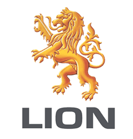
"At Liquor Barons we have an entrepreneurial mindset and are proud of being proactive rather than reactive in our approach to delivering the best possible customer service, which includes our premier liquor loyalty program and consumer-driven marketing. Given Complexica’s expertise in the Liquor industry, and significant customer base on both the retail and supplier side, we chose Complexica's Promotional Campaign Manager for digitalizing our spreadsheet-based approach for promotion planning, range management, and supplier portal access, which in turn will lift the sophistication of our key marketing processes."
Richard Verney
Marketing Manager
Liquor Barons

"Dulux is a leading marketer and manufacturer of some of Australia’s most recognised paint brands. The Dulux Retail sales team manage a diverse portfolio of products and the execution of our sales and marketing activity within both large, medium and small format home improvement retail stores. We consistently challenge ourselves to innovate and grow and to create greater value for our customers and the end consumer. Given the rise and application of Artificial Intelligence in recent times, we have partnered with Complexica to help us identify the right insight at the right time to improve our focus, decision making, execution, and value creation."
Jay Bedford
National Retail Sales Manager
Dulux

"Following a successful proof-of-concept earlier this year, we have selected Complexica as our vendor of choice for standardizing and optimising our promotional planning activities. Complexica’s Promotional Campaign Manager will provide us with a cloud-based platform for automating and optimising promotional planning for more than 2,700 stores, leading to improved decision-making, promotional effectiveness, and financial outcomes for our retail stores."
Rod Pritchard
Interim CEO, Metcash - Australian Liquor Marketers
$3.4 billion in revenue 
"After evaluating a number of software applications and vendors available on the market, we have decided to partner with Complexica for sales force optimisation and automation. We have found Complexica’s applications to be best suited for our extensive SKU range and large set of customers, being capable of generating recommendations and insights without burdening our sales staff with endless data analysis and interpretation.
Aemel Nordin
Managing Director, Polyaire
"DuluxGroup is pleased to expand its relationship with Complexica, a valued strategic partner and supplier to our business. Complexica’s software will enable DuluxGroup to reduce the amount of time required to generate usable insights, increase our campaign automation capability, personalise our communications based on core metrics, and close the loop on sales results to optimise ongoing digital marketing activity."
James Jones
Group Head of CRM, DuluxGroup
"Instead of hiring hundreds of data scientists to churn through endless sets of data to provide PFD with customer-specific insights and personalised recommendations, Larry, the Digital Analyst® will serve up the answers we need, when we need them, on a fully automated basis without the time and manual processes typically associated with complex analytical tasks.”
Richard Cohen
CIO, PFD Foods
$1.6 billion in revenue 
"As a global innovator in the wine industry, Pernod Ricard Winemakers is always seeking ways to gain efficiencies and best practices across our operational sites. Given the rise of Artificial Intelligence and big data analytics in recent times, we have engaged Complexica to explore how we can achieve a best-in-class wine supply chain using their cloud-based software applications. The engagement is focused on Australia & New Zealand, with a view to expand globally."
Brett McKinnon
Global Operations Director, Pernod Ricard Winemakers
"70% - 80% of what we do is about promotional activity, promotional pricing -- essentially what we take to the marketplace. This is one of the most comprehensive, most complex, one of the most difficult aspect of our business to get right. With Complexica, we will be best in class - there will not be anybody in the market that can perform this task more effectively or more efficiently than we can."
Doug Misener
CEO, Liquor Marketing Group
1,400+ retail stores 
"The key thing that makes such a difference in working with Complexica is their focus on delivering the business benefits and outcomes of the project."
Doug Misener
CEO, Liquor Marketing Group
1,400+ retail stores 
"Australia needs smart technology and people, and it has been a great experience for me to observe Complexica co-founders Zbigniew and Matt Michalewicz assemble great teams of people using their mathematical, logic, programming, and business skills to create world-beating products. They are leaders in taking our bright graduates and forging them into the businesses of the future."
Lewis Owens
Chairman of the Board, SA Water 
"Having known the team behind Complexica for some years ago now, I am struck by their ability to make the complex simple - to use data and all its possibilities for useful purpose. They bring real intelligence to AI and have an commercial approach to its application."
Andrew McEvoy
Managing Director, Fairfax Media - Digital 
"I have worked with the team at Complexica for a number of years and have found them professional, innovative and have appreciated their partnership approach to delivering solutions to complex problems."
Kelvin McGrath
CIO, Asciano 
“Working with Complexica to deliver Project Automate has been a true partnership from the initial stages of analysis of LMG’s existing processes and data handling, through scoping and development phase and onto delivery and process change adoption. The Complexica team have delivered considerable value at each stage and will continue to be a valued partner to LMG."
Gavin Saunders
CFO, Liquor Marketing Group 
“Complexica’s Order Management System and Larry, the Digital Analyst will provide more than 300 Bunzl account managers with real-time analytics and insights, to empower decision making and enhanced support. This will create more time for our teams to enable them to see more customers each day and provide the Bunzl personalised experience.”
Kim Hetherington
CEO, Bunzl Australasia 
"The team behind Complexica develops software products that are at the cutting edge of science and technology, always focused on the opportunities to deliver a decisive competitive edge to business. It has always been a great experience collaborating with Matthew, Zbigniew and Co."
Mike Lomman
GM Demand Chain, Roy Hill Iron Ore 
"The innovations that the Complexica team are capable of continue to amaze me. They look at problems from the client side and use a unique approach to collaborating with and deeply understanding their customers challenges. This uniquely differentiates what they bring to market and how they deliver value to customers."
John Ansley
CIO, Toll Group 
"Rather than building out an internal analytics team to investigate and analyse countless data sets, we have partnered with Complexica to provide our sales reps with the answers they need, when they need them, on a fully automated basis. We are excited about the benefits that Larry, the Digital Analyst will deliver to our business.”
Peter Caughey
CEO, Coventry Group 
“Complexica’s Order Management System and Larry, the Digital Analyst will provide more than 300 Bunzl account managers with real-time analytics and insights, to empower decision making and enhanced support. This will create more time for our teams to enable them to see more customers each day and provide the Bunzl personalised experience.”
Kim Hetherington
CEO, Bunzl Australasia 
"After an evaluation process and successful proof-of-concept in 2016, we have chosen to partner with Complexica to upgrade the technological capability of our in-field sales force. The next-generation Customer Opportunity Profiler provided by Complexica will serve as a key tool for sales staff to optimise their daily activities, personalise conversations and interactions with customers, and analyse data to generate actionable insights."
Stephen Mooney
Group Sales Capability Manager, DuluxGroup
$1.7 billion in revenue
"After evaluating a number of software systems available in the marketplace, we have ultimately selected Complexica as our vendor of choice for sales force automation and CRM. Given the large SKU range we carry and very long tail of customers we serve, Complexica’s applications are best suited to deal with this inherent complexity without burdening our staff with endless data entry."
Nick Carr
CEO, Haircaire Australia
Australia's largest distributor of haircare products
“Asahi Beverages is Australia’s largest brewer, supplying a leading portfolio to wholesalers and retailers, including some of Australia’s most iconic brands. Last year Asahi Beverages acquired Carlton & United Breweries, which is its Australian alcohol business division. To harness the strength of our expanded portfolio, we partner with our customers to run multiple and frequent trade promotions throughout the year, delivering long-term growth for both our business and theirs. Given the inherent complexity in optimising promotional plans and our continued focus on revenue and growth management, we have selected Complexica as our vendor of choice after a successful Proof-of-Concept of its world-class optimisation capabilities.”
Kellie Barnes
Group Chief Information Officer
Asahi Beverages
"Dulux is a leading marketer and manufacturer of some of Australia’s most recognised paint brands. The Dulux Retail sales team manage a diverse portfolio of products and the execution of our sales and marketing activity within both large, medium and small format home improvement retail stores. We consistently challenge ourselves to innovate and grow and to create greater value for our customers and the end consumer. Given the rise and application of Artificial Intelligence in recent times, we have partnered with Complexica to help us identify the right insight at the right time to improve our focus, decision making, execution, and value creation."
Jay Bedford
National Retail Sales Manager, DuluxGroup
"At Liquor Barons we have an entrepreneurial mindset and are proud of being proactive rather than reactive in our approach to delivering the best possible customer service, which includes our premier liquor loyalty program and consumer-driven marketing. Given Complexica’s expertise in the Liquor industry, and significant customer base on both the retail and supplier side, we chose Complexica's Promotional Campaign Manager for digitalizing our spreadsheet-based approach for promotion planning, range management, and supplier portal access, which in turn will lift the sophistication of our key marketing processes."
Richard Verney
Marketing Manager, Liquor Barons








